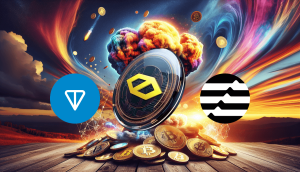The internet is at the center of so many aspects of modern life, whether it’s through social media platforms or the sites that we record data on.
While these platforms are essential, they can exist and thrive because of the people who use them. Social media platforms would not exist or be able to charge advertising fees if millions did not use them. This is true of virtually every part of the internet.
In essence, the people are the ones that evolve the platforms, but often, they are not aware of the material benefits such platforms could bring. Twitter doesn’t pay people to tweet, even if their tweets generate thousands of dollars in engagement for the company, and for years, this is just how the internet worked.
However, the blockchain sector is now on a mission to change the concept of how internet users interact with the platforms and how they are compensated for their activities.
The Blockchain Disruption
The last decade has seen the monetization of online content in many ways, including influencer marketing and selling content as non-fungible tokens (NFTs). As seen with the latter, the blockchain industry has been a viable tool in rewarding internet users for their efforts in ways that didn’t exist in the past.
However, this is not the only example. Take to Brave browser, a blockchain-based privacy browser that allows users to opt into viewing ads and rewards them for doing so in the form of its native BAT cryptocurrency.
The current version offers many ways of rewarding people for their engagement on the internet. However, Web3, the next stage of internet evolution, is on track to employ this even more, thanks to projects like xHashtag.
How xHashtag Rewards Users
xHashtag is a play-to-earn DAO that rewards users for completing off-chain tasks and on-chain transactions on Web3 platforms. Web3 is considered the next version of the internet and has been touted as being more secure and seamless to use than the existing version.
However, as more applications are being built on Web3, the engagement of users is highly needed. It helps such applications grow and develop. In the current version of the internet, no rewards would be given to the users of these platforms, but instead, all profits realized would go to the platform developers.
Web3 will step in to be different from the current version of the internet, and xHashtag agrees on this. This is why users are rewarded with various tokens for carrying out tasks and microtransactions on these platforms. Depending on the platform itself and the nature of the task, some carry higher rewards than others.
Using a platform like xHashtag helps Web3 teams to easily access a plethora of people who wish to complete small or larger tasks for them. The rewards are paid out in the form of the individual platform’s native token, thus allowing the Web3 teams to distribute their tokens and achieve decentralization with high ROI.
“There are new types of jobs incoming that we probably cannot imagine right now, and such jobs would require a new type of marketplace, and we are building decentralized infrastructure for it right now,” the CEO of xHashtag Monica Durga says.
Describing itself as the ‘Future of Work,’ xHashtag’s status as a DAO is also in line with Web3. Decisions are made through community voting, and its decentralized nature leads to a more secure ecosystem.
As we enter the era of Web3, platforms like xHashtag will play a key role. First, they will help to secure the growth of valuable communities and platforms. They will also ensure that those who build and keep these communities and platforms thriving are well compensated for their efforts.





















